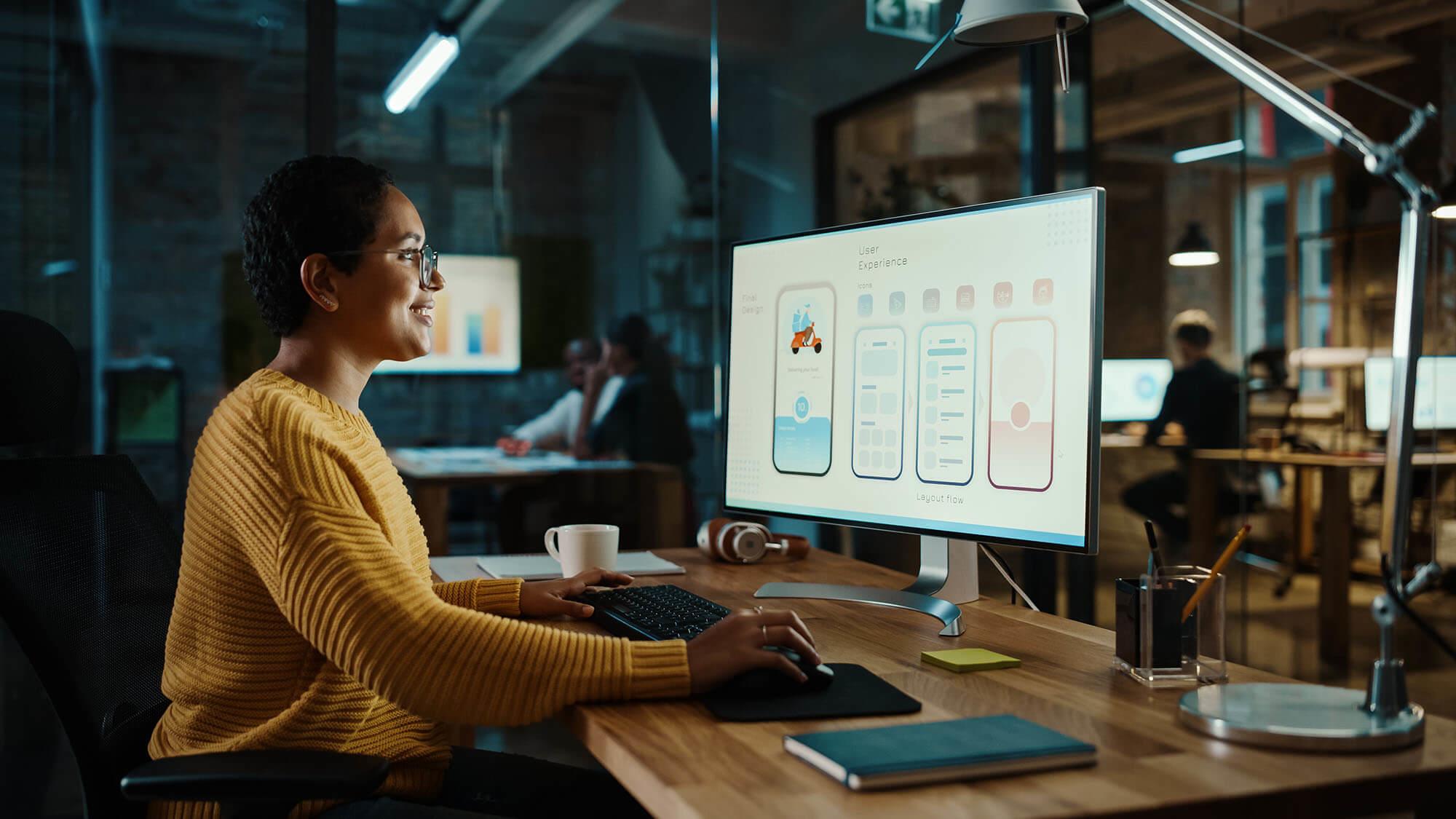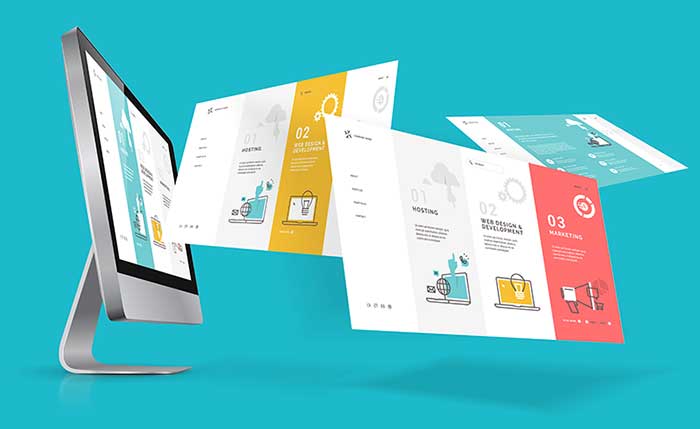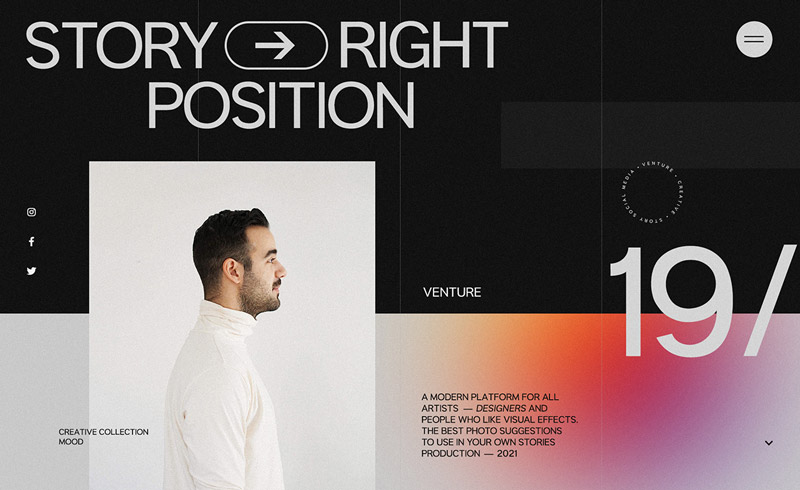Web Design London Ontario for E-Commerce and Businesses
Understanding the Trick Components That Make up Efficient Internet Style Methods
When it pertains to website design, comprehending the crucial elements can make all the difference in customer engagement and fulfillment. You need to contemplate aspects like user-friendly navigating and responsive design to develop a seamless experience. That's just the begin. Each element plays an essential function in directing individuals through your web content and affecting their habits. Curious concerning what truly drives these strategies? Let's explore deeper right into these necessary aspects.
The Significance of User Experience (UX) in Website Design
User experience (UX) is the backbone of efficient website design, forming how site visitors engage with your website. When you prioritize UX, you develop a space where customers really feel comfortable, engaged, and valued. A well-designed UX guarantees that your target market can quickly navigate your web content, discover information rapidly, and appreciate their total experience.You should consider your individuals' choices and requirements, as this understanding straight influences their contentment. By concentrating on elements like lots times, mobile responsiveness, and ease of access, you boost their experience considerably.Moreover, a positive UX fosters depend on and urges repeat sees, which can lead to greater conversion prices. Remember, users will not hesitate to leave your site for a competitor if they experience aggravation or complication. Ultimately, buying UX isn't practically appearances; it has to do with producing a user-centric layout that maintains site visitors returning for more.
Crafting Instinctive Navigating for Seamless Surfing
When designing a site, crafting instinctive navigation is necessary for assuring visitors can find what they need without irritation. Beginning by arranging your content rationally; team associated pages with each other to assist customers predict where to locate info. Use clear, succinct labels for navigation links, avoiding jargon that could perplex your audience.Consider applying a hierarchical framework with a major menu and dropdowns for subcategories, making it easy to drill down into specific topics. Incorporate a search bar to empower users to locate material directly, especially on larger sites.Don' t ignore mobile users; determine your navigation continues to be obtainable on smaller sized displays. Keep it easy and constant throughout all pages to reinforce familiarity. By concentrating on these aspects, you'll create a smooth surfing experience that maintains site visitors involved and encourages them to explore more of what you have to use.
Receptive Design: Adjusting to Various Devices
As the selection of devices people make use of to access the web proceeds to expand, guaranteeing your site is responsive has never ever been a lot more critical. A receptive style suggests your website adapts seamlessly to different display sizes, from smart devices to desktops, supplying an exceptional watching experience. This adaptability not only boosts customer fulfillment but likewise increases your website's performance in online search engine rankings.To create a receptive style, usage flexible grids and layouts that automatically adapt to the display's measurements. Carry out CSS media queries to personalize styles based upon device features. Prioritize necessary content, ensuring it's conveniently available on smaller sized displays without overwhelming customers.
The Function of Visual Hierarchy in Effective Layouts
Aesthetic power structure is necessary for directing your audience's interest where it matters most. By properly using focal points, typography, shade, and comparison, you can create a format that connects your message plainly. Let's check out just how these elements work together to enhance your layout.
Significance of Focal Things
Focal factors are important in website design, guiding users' interest to one of the most important elements on a page. By tactically putting these focal points, you produce a clear visual hierarchy that improves user experience. Consider what you want your site visitors to discover first-- whether it's a call-to-action switch, a crucial image, or significant information.Using dimension, positioning, and contrast, you can attract attention to these centerpieces, making them stick out. Keep in mind, the more noticeable the focal point, the more most likely customers are to engage with it. A properly designed format not just captures rate of interest but also leads users with your material seamlessly, ensuring they soak up the information that matters most. Prioritizing focal factors is essential for efficient communication on your website.
Shade and Comparison Use
Effective usage of shade and comparison can considerably influence exactly how users regard your site's content. By picking a color scheme that lines up with your brand, you develop a psychological connection with visitors. High contrast in between message and history enhances readability, guaranteeing your message attracts attention. Use contrasting colors to highlight essential elements, like call-to-action switches, leading individuals' focus where it matters most.Additionally, equilibrium is essential; way too much comparison can be frustrating, while inadequate may render your content unnoticeable. Applying a visual hierarchy with color helps customers navigate your site without effort. You want them to quickly identify between headings, subheadings, and body message, which enhances their overall experience. Ultimately, reliable color and contrast usage keeps customers engaged and motivates them to check out better.
Typography's Influence on Style
While it's simple to ignore, typography plays a visit necessary role fit your web site's style and general individual experience. It develops a visual pecking order that overviews site visitors with your content. By picking the right font styles, dimensions, and designs, you can stress vital details and develop a smooth circulation. For circumstances, utilizing bigger headings helps individuals swiftly determine areas, while smaller sized body message offers detailed insights without overwhelming them. Consistent typography not just improves readability but additionally reinforces brand identification. Keep in mind to balance decorative typefaces with readability to preserve professionalism and trust. Eventually, effective typography warranties your message resonates, making your website more appealing and user-friendly. Prioritizing this aspect can considerably raise your design strategy and effect.
Utilizing Compelling Material to Engage Visitors
Just how can you keep your visitors engaged and returning for more? The response depends on compelling web pop over here content. Beginning by recognizing your audience and what rate of interests them. Develop informative short articles, enthralling stories, or entertaining video clips that reverberate with their needs. Utilize a conversational tone to make your content relatable; it needs to seem like a friendly conversation as opposed to a lecture.Incorporate visuals like images, video clips, and infographics to damage up text and maintain points dynamic. Do not forget to welcome communication-- ask questions, encourage remarks, or include polls to stimulate discussions.Also, prioritize quality and conciseness. Make certain your bottom lines shine through without unnecessary lingo or fluff. Keep in mind, quality over quantity matters; it's better to have less, high-impact items than a slew of mediocre ones. Ultimately, when your material's interesting, site visitors will certainly not only linger yet additionally share it with others.
The Influence of Shade Psychology on User Interaction
Believe regarding exactly how they can affect customer feelings and understandings when you select shades for your web site. Colors can enhance your brand identification while also making certain access through contrast. Recognizing these components can considerably increase user communication and involvement.
Shade Meanings and Emotions
Recognizing shade psychology is necessary for producing an interesting internet style, as the colors you pick can evoke particular emotions and affect customer communications. Different shades can activate various feelings; for instance, blue often shares count on and calmness, while red can stimulate enjoyment or urgency. When you integrate these colors attentively, you assist your users toward desired activities. Yellow can influence optimism and happiness, making it efficient for contact us to action, while green advertises leisure and a connection to nature. By aligning your shade palette with the feelings you wish to evoke, you enhance customer experience. Consider your target market and the message you wish to share, ensuring your color Learn More Here selections resonate and produce a long lasting influence.
Brand Name Identity Via Colors

Shade Comparison and Availability
While picking a shade palette is vital, ensuring appropriate comparison is important for ease of access. You want your website to be aesthetically enticing, however it must additionally accommodate all users, consisting of those with visual problems. High comparison between text and history boosts readability, making it less complicated for every person to involve with your content.Think about color psychology, too. Various colors evoke numerous feelings and reactions. By understanding just how shades influence individual interaction, you can lead users towards preferred actions. For circumstances, using cozy colors can develop necessity, while awesome colors might impart calmness. Constantly examine your shade combinations to confirm they meet accessibility standards, assisting you create a comprehensive experience that resonates with all site visitors.
Optimizing Lots Speed for Boosted Performance
Considering that users expect internet sites to pack rapidly, maximizing load speed is critical for improving performance and individual satisfaction. A slow-loading website can irritate site visitors and drive them away, so you need to act. Beginning by compressing photos and using contemporary layouts like WebP. This can significantly lower file dimensions without giving up quality.Next, minimize HTTP demands by combining CSS and JavaScript data. Less demands mean quicker tons times (website design london Ontario). Applying lazy loading for images and video clips warranties that web content loads only when individuals scroll down, enhancing initial tons speed.Additionally, take advantage of internet browser caching to save frequently accessed resources, enabling repeat site visitors to appreciate faster packing times. Ultimately, pick a dependable holding service provider. Their performance directly impacts your site's rate
Regularly Asked Questions
Exactly How Can I Determine the Efficiency of My Website Design Approach?
To gauge your website design approach's performance, track individual engagement metrics like bounce prices, conversion prices, and ordinary session period. Use tools like Google Analytics to collect insights and change your strategy based on the data.
What Are Common Mistakes to Stay Clear Of in Internet Design?
In website design, prevent cluttered formats, irregular font styles, and slow loading times (website design london Ontario). Do not disregard mobile responsiveness or overlook user screening. Prioritize ease of access and guarantee clear navigation to improve individual experience and maintain visitors involved
How Commonly Should I Update My Web Site Design?
You ought to upgrade your site layout every 1 to 2 years, or whenever substantial modifications occur in your brand name or sector. Regular updates keep your site fresh, improve user experience, and boost capability.

What Devices Can Aid Analyze Individual Behavior on My Website?
To examine customer behavior on your website, you can make use of tools like Google Analytics, Hotjar, or Crazy Egg. They'll offer insights right into individual interactions, aiding you make notified decisions for boosting your web site's efficiency.

Exactly how Do I Pick the Right Font Style for My Web site?
Picking the right typeface for your site involves considering readability, design, and placement with your brand name. Trying out different typefaces, verify they're legible on various tools, and preserve uniformity across your web pages for a natural look. Integrate a search bar to empower users to find material directly, especially on larger sites.Don' t fail to remember concerning mobile users; determine your navigating stays easily accessible on smaller screens. Effective usage of shade and comparison can substantially influence how users perceive your website's material (website design london Ontario). Recognizing shade psychology is important for producing an engaging web style, as the colors you choose can stimulate details emotions and influence user communications. By recognizing exactly how shades effect customer interaction, you can lead customers toward preferred actions. Considering that individuals anticipate internet sites to load swiftly, maximizing load rate is crucial for enhancing performance and user contentment